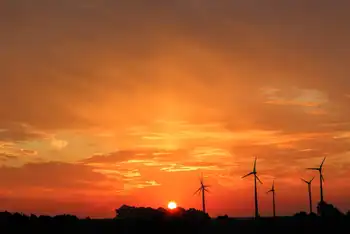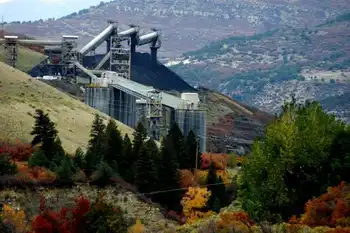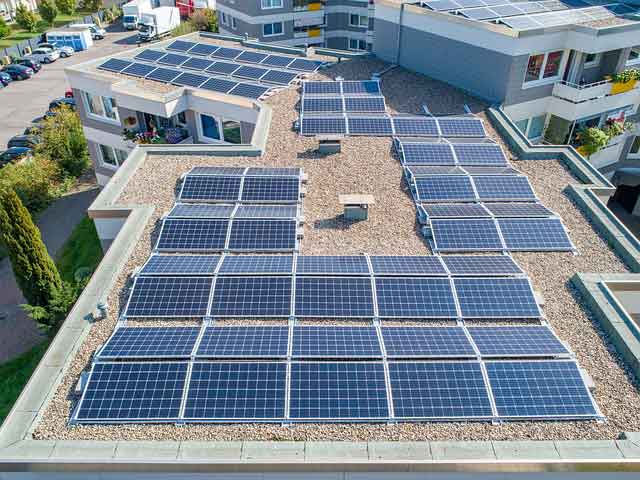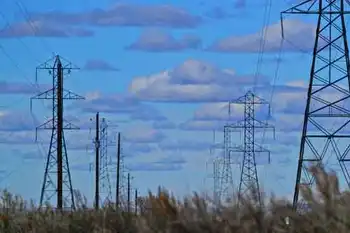Vote to strip EPA of GHG regulatory powers
The sharply partisan vote was preordained by the Republican takeover of the House. Republicans and their industry allies accuse the administration of levying taxes on traditional energy sources through costly environmental regulations, threatening the economic recovery and driving jobs overseas.
Many Republicans also argue that global warming is an unproven theory and that no action is needed to combat it, and they are backed by lobbies representing manufacturers small businesses agriculture and the chemical, coal and oil industries all of which have a big financial stake in hamstringing the EPA.
A parallel bill has been introduced in the Senate, although passage remains uncertain. President Obama has vowed to veto such legislation, which would undercut his administrationÂ’s policy of encouraging clean energy innovation with billions of dollars in support and rules that make it more costly for industry to keep spewing carbon dioxide.
Some coal state and oilpatch Democrats in both chambers also support the legislation, so it is not certain that the presidentÂ’s allies could prevent a veto override.
Yet the criticism from early allies who advocate aggressive action to address climate change is in some ways harsher. In their view, Mr. Obama failed to push hard enough for a strong climate change policy last year, when he enjoyed high public standing and large Democratic majorities in the Senate and House.
“We’ll never know what this president could have achieved,” said Joseph J. Romm, a former Department of Energy official who is one of the country’s most influential writers on climate change, “because he didn’t try.”
Dr. Romm, a senior fellow at the left-leaning Center for American Progress, which has close ties to the White House, contends that the presidentÂ’s approach has been too timid and has set back efforts to address climate change by at least a decade.
As he takes heat from both sides, Mr. Obama is moving cautiously. Gone are his calls for sweeping action on climate change by putting a ceiling on greenhouse gas emissions or a price on carbon dioxide.
Today, the president rarely utters the words “climate change” or “global warming,” and instead talks about expanding production from nuclear power, domestic oil and natural gas, “clean coal” and new technologies.
The president acknowledges that the window for comprehensive action on climate change in the United States has closed for the foreseeable future as a result of Republican gains in the midterm elections.
He has said he now intends to pursue a clean energy policy in smaller pieces, through measures intended to increase production of renewable energy, encourage production of domestic energy resources and gradually impose rules that will make the burning of coal, oil and natural gas cleaner.
“The president sees investment in this all-of-the-above energy approach as very important as we head into a dialogue on rising gas prices and where we need to take the nation on energy,” said Carol M. Browner, the White House coordinator on energy and climate change, who has announced that she is leaving the administration.
Ms. Browner acknowledged that the president talks less often now about global warming. “But what’s important is not the words he’s uttering from one day to the next, but developing an energy policy that benefits consumers and makes the country more secure,” she said.
She and other defenders of the administration note that in his first two years in office the president brokered a historic deal to reduce emissions from cars and light trucks, revved up energy efficiency efforts across the federal government and poured tens of billions of dollars into renewable energy programs and infrastructure.
Ms. Browner said that innovation and regulation were not contradictory policies, but complementary means to an end. Requiring greater efficiency and fewer emissions through regulation, she said, drives innovation and brings new technology to the market.
Energy and environmental issues have always carried heavy economic, ideological and regional baggage. Pursuing such a debate in a time of economic stress and rising energy prices is even more difficult, and prospects are dim for any major legislation in the next two years.
The administrationÂ’s new strategy grew from the failure of legislation to address global warming through a market-based cap-and-trade system, an approach Mr. Obama had strongly endorsed in his campaign and in his first year in office.
A comprehensive bill passed the House in 2009 but died in the Senate the next year, a victim of united Republican opposition, uncertainty about the economy, bad blood from the health care debate and unease generated by the Deepwater Horizon oil spill.
The Obama White House ceded defeat on climate change midyear without a full-fledged battle.
“In the last Congress, the focus was on trying to do something on climate change, and after the cap-and-trade bill passed the House, there was some expectation we would follow in the Senate,” said Senator Jeff Bingaman, the New Mexico Democrat who leads the Energy and Natural Resources Committee. “It was clear to some of us early on that the votes weren’t there to do that.”
Now, Mr. Bingaman said, the administration’s challenge is to protect the regulatory authority it does have to act on greenhouse gases by stopping the Republican anti-EPA steamroller. “I think the votes are there to uphold a presidential veto, if it comes to that,” Mr. Bingaman said. “But I’m not certain.”
After the collapse of climate legislation and the Republican surge last November, Mr. Obama pivoted, declaring in his State of the Union address in January that he would try to move the country away from dependence on dirty fuels over the next 25 years through a shift to cleaner sources of energy.
It is an ambitious goal, but to date there are only piecemeal programs in place to achieve it, many of them in development at the Department of Energy. The president has not proposed legislation to make his vision a reality.
Steven Chu, the secretary of energy and a Nobel laureate in physics, said that achieving the presidentÂ’s goal of producing 80 percent of the nationÂ’s electricity through low-carbon sources by 2035 would require not only strongly supporting a variety of energy technologies, including nuclear power, but also eventually making it more expensive to burn fossil fuels.
“In actual fact, you need both in the end,” he said in an interview. “The world will have to, in some way in the future, put a price on carbon. And everybody will have to recognize that.”
To get to that point, Mr. Chu added, will require legislation and a major sales job.
“I need to convince Congress, the president needs to convince Congress,” he said, “how important this is.”
Related News

Zero-emission electricity in Canada by 2035 is practical and profitable
OTTAWA - A powerful derecho that left nearly a million people without power in Ontario and Quebec on May 21 was a reminder of the critical importance of electricity in our daily lives.
Canada’s electrical infrastructure could be more resilient to such events, while being carbon-emission free and provide low-cost electricity with a decentralized grid powered by 100 per cent renewable energy, according to a new study from the David Suzuki Foundation (DSF).
This could be accomplished by 2035 by building a lot more solar and wind, adding energy storage, while increasing the energy efficiency in buildings, and modernizing provincial energy grids.…





